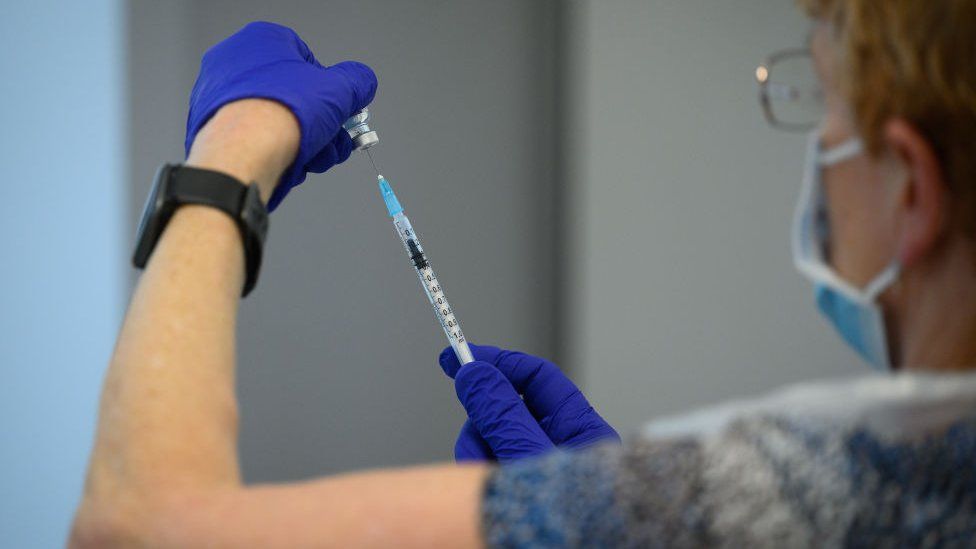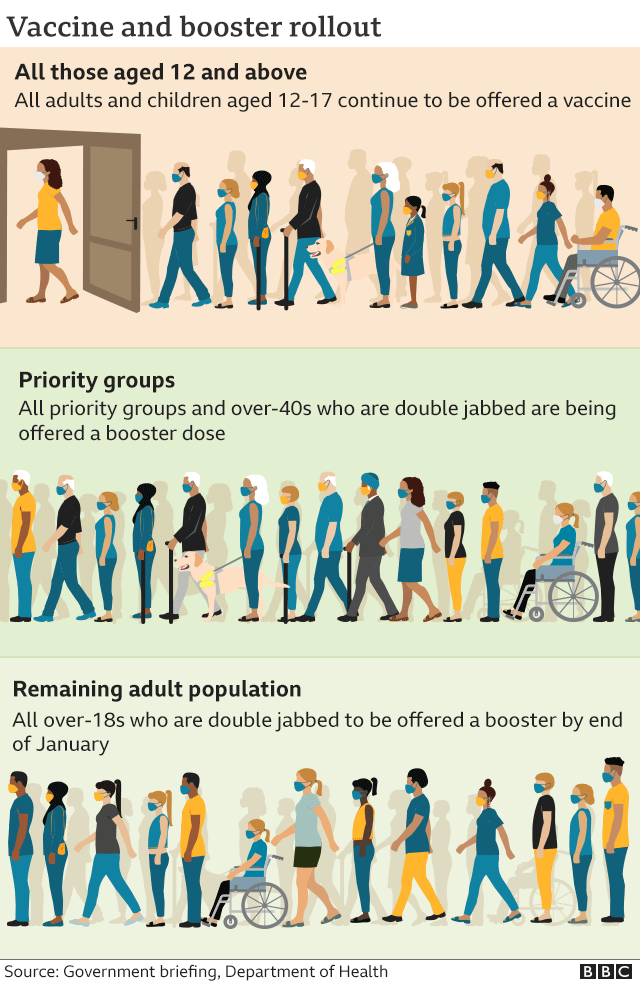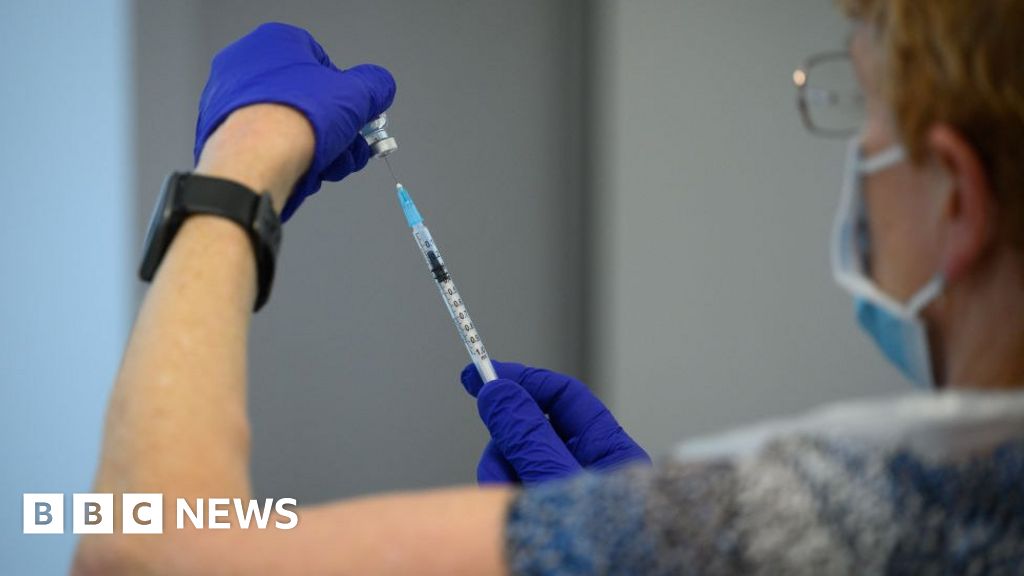
GPs in England can defer some of the services they provide to patients to allow them to deliver Covid booster jabs instead, NHS chiefs have said.
Practices can postpone minor surgery and routine health checks for over-75s and new patients until 31 March.
It comes after the PM said all adults in England would be offered boosters by the end of January in response to the emergence of the Omicron variant.
A further 75 Omicron cases were confirmed in England on Friday.
The latest cases take the total for England to 104 and for the UK as a whole to 134 – including the first confirmed case in Wales.
Prime Minister Boris Johnson’s announcement of an expansion of boosters on Tuesday followed a series of recommendations made by the Joint Committee on Vaccination and Immunisation.
As well as recommending that all over-18s in the UK should be offered top-up vaccines, the JCVI said the minimum gap between the second dose and boosters should be cut from six to three months.
In a letter released on Friday, NHS England acknowledged that services were already under pressure, but said there was a new “national mission” to increase vaccine capacity.
Setting out steps for ramping up the booster roll-out, the letter said the Army and “clinical students” could be called on to help deliver vaccines.
It also said the NHS’s booking service for vaccinations in England would be updated “no later” than 13 December to allow all adults to book their top-up jabs and to reflect the change in guidance from the JCVI.
Dr Gary Howsam, vice chair of the Royal College of GPs, said “capacity needs to expand” in order to meet the target of offering all eligible people a booster jab by the end of January.
“These are sensible, temporary measures that will address some of the bureaucratic demands on practices and have minimal impact on the care patients receive in general practice, allowing GPs and our teams to focus their efforts where currently most clinically necessary,” Dr Howsam said.
“We hope these measures will support primary care networks to get involved in delivering the expanded booster campaign, if they are not already and feel it is safe to do so.”
Dr Farah Jameel, the GP committee chair of the British Medical Association, said NHS England’s plans would remove “some of the more bureaucratic and target-based requirements within practices’ contracts” and free up time “to get more jabs into arms, while allowing practices to focus on patients who need their attention the most”.
But the Patients Association told the Guardian that withdrawing some services risked signs of illness being missed, disrupting the relationship between patients and the NHS.
First Welsh Omicron case
Until the rollout was expanded, boosters had been restricted to those aged 40 and over, front-line health or social workers, and those with health issues.
Priority for boosters will still be given to those at the greatest risk, with jabs being given in descending age groups and to the most at-risk groups first, NHS England’s letter says.
More than 19 million booster or third doses have been given in the UK so far, according to government statistics.
On Friday the UK reported a further 50,584 cases of coronavirus and a further 143 deaths within 28 days of a positive Covid test.

The rush to expand the vaccination programme comes as more cases of the Omicron variant, first identified in South Africa where it is driving a surge in infections, are found.
Scientists have raised concerns that the heavily mutated variant may be able to escape immunity from vaccines.
The first case of the variant has been found in Wales, while 29 cases have been identified in Scotland – with six of these being linked to a Steps concert.
Dr Jenny Harries, chief executive of UKHSA – the body which replaced Public Health England, said the agency had started to see cases where there were no links to travel, suggesting there was “a small amount of community travel”.
She said vaccination was “critical” to bolster defences against the new variant.
Meanwhile, a new campaign has been launched to encourage expectant mothers to get the vaccine, after it was revealed that 98% of pregnant women in hospital with symptomatic Covid-19 are unvaccinated.
The Department of Health and Social Care said nearly one in five Covid-19 patients who are most critically ill are pregnant women who have not been vaccinated.

- WHAT RISK DOES AI POSE TO OUR FUTURE?: Stuart Russell explores the future of Artificial Intelligence
- THE FAMOUS PHOTO OF A US PRESIDENT THAT’S ACTUALLY FAKE: How long has catfishing been around for?

